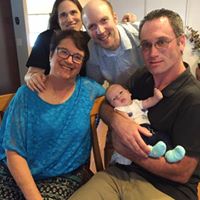Where did the word "Kindergarten" come from?
Kindergarten (/ˈkɪndərˌɡɑːrtən/, US: /-dən/ (About this soundlisten); from German [ˈkɪndɐˌɡaːɐ̯tn̩]), literally meaning 'garden for the children') is a preschool educational approach based on playing, singing, practical activities such as drawing, and social interaction as part of the transition from home to school. Such institutions were originally created in the late 18th century in Bavaria and Strasbourg to serve children whose parents both worked outside home. The term was coined by the German Friedrich Fröbel, whose approach globally influenced early-years education. Today, the term is used in many countries to describe a variety of educational institutions and learning spaces for children ranging from two to seven years of age, based on a variety of teaching methods.
In 1779, Johann Friedrich Oberlin and Louise Scheppler founded in Strasbourg an early establishment for caring for and educating pre-school children whose parents were absent during the day. At about the same time, in 1780, similar infant establishments were created in Bavaria. In 1802, Princess Pauline zur Lippe established a preschool center in Detmold, the capital of the then principality of Lippe, Germany (now in the State of North Rhine-Westphalia).
More Info:
en.wikipedia.org











